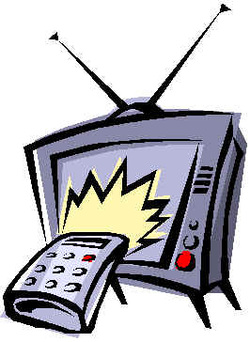
Let me say first, that I try not to watch a lot of television because I wasted a lot of time on it in the past. But having said that, I do try to keep up with what's out there, at least a little, so that I can know what people are referring to on social media.
Among my Black, female friends, two shows seem to be generating the most conversation right now. Once is the night-time soap Scandal, and the other is cable drama Being Mary Jane. On one hand, these are shows about powerful, successful women with high profile careers. They are also the characters that the shows are centered on, rather than merely being the friend or the side-kick. These are the types of characterizations that women, especially women of color, have been clamoring for. The only down-side? To paraphrase my friend Cassandra, "Why do they have to be side pieces?"
Both characters, although savvy professionals, are knowingly involved in relationships with married men. To Hollywood, that makes for high drama, and wonderful story lines. To the viewer that realizes that Hollywood still has a long way to go with it's portrayals of women, especially it's depictions of minority women, it feels like one step forward, two steps back. Even as we are finally given unqualified leads in television shows, Hollywood still cannot resist the temptation of portraying powerful women, of any race, as incapable of handling a healthy personal relationship.
It is well documented that Hollywood has a problem with women. It is only remarkable when you see or hear of a woman being promoted, or a woman in a position of power, because it is so exceedingly rare. Although the box office and ratings successes of women-helmed movies and shows, both in front of and behind the camera, should justify allowing women more autonomy and control over what images of them are portrayed on screen, the more I see and read about, the more it seems like we are running in place. For every Black Widow, we get two Mikaelas. For every Mara Brock Akil, there are dozens of young writers and directors whose ideas won't even be read because someone will notice the sex or race of the submitter, and decide right away that the writing is not good enough, and/or there will be no audience for it.
Who, exactly, is this audience? Certainly not the one's who do not consume the media presented without question or comment; in fact these are the viewers television execs would like to avoid. We hold them to a higher standard, because we realize that television both defines and reinforces popular images of women and minorities, and for every negative portrayal, or stereotype confirmation, there will be more work on our part to counter it. Which is why when women, especially minority women, are shown engaging in morally questionable behavior, no matter how together the rest of their lives are shown, that one little tidbit stands out.
Historically, minority women's sexuality has always been thought to be one or the other of extremes: either the sexless, hyper religious Mammy, or the tart tongued, sassy strumpet. Rarely did a t.v. or movie character defy either of those polar opposites. Single Black women weren't shown at all, certainly not dating normally, until the show Girlfriends aired. Mostly, single women were shown as being loose, or easy. Here we are, decades into the portrayals of Black women on television, and even though we finally won the career battle, and the starring role battle, the character still has to have a faulty moral compass. You cannot tell me that those in charge could not have come up with a better romantic story line than to have women we are ostensibly supposed to admire involved with married men.
Therein lies the rub, not just for Black women, although that stick in the eye hurts that much more. Why can't you have a woman that more or less has it all together be the center of the show? I dare say that these women could have been dating a wide variety of men with other, serious issues, and it would not have harmed the viewership in any way. I understand that flaws make for better story, but must the flaw go straight to stereotype? A nervous tic, is a flaw. Being embarrassed about a poor background is a flaw. Being condescending to others is a flaw. And all of these flaws can be had by anyone. I realize that Hollywood rarely entertains original ideas, nor does it respect the input of women unless said input conforms in some way to the vision they already have of what they feel women's roles should be. But with the wealth of new ideas, writers, directors, and pure talent out there, if they bothered to look carefully, they wouldn't have to resort to tired stereotypes for conflict.
 RSS Feed
RSS Feed
